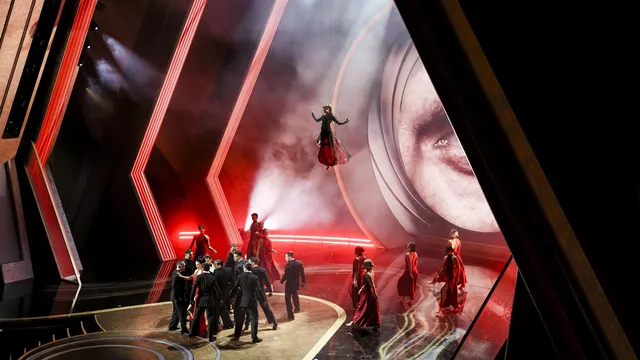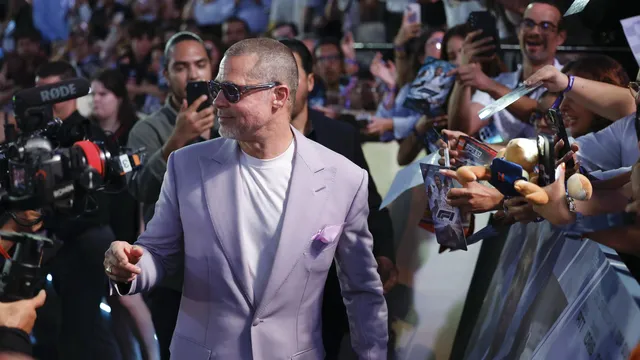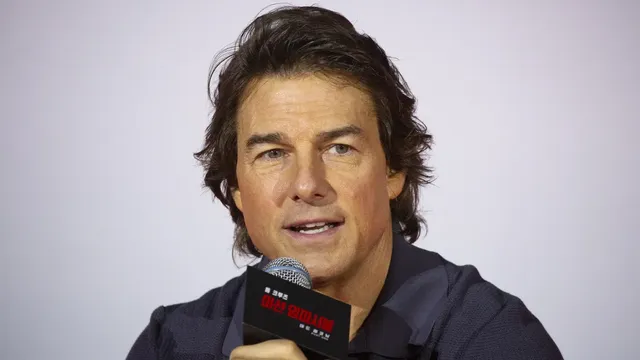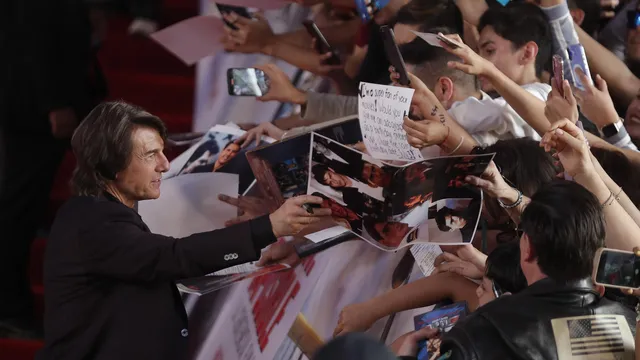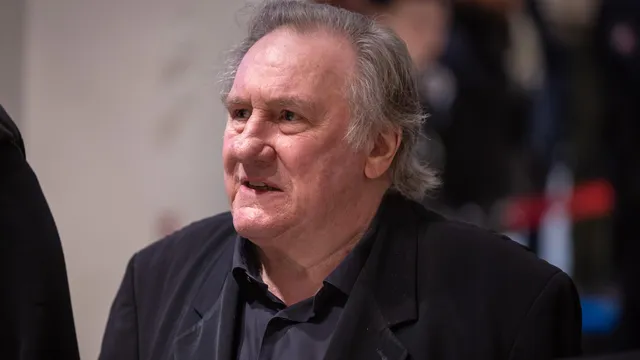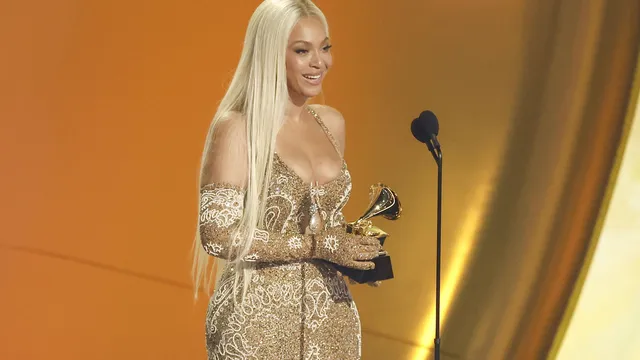In cinema, there is no such thing as a "qualified director." Even if you have graduated from the most prestigious and expensive film school in the country, there is no guarantee that you will have the necessary qualities to make a film, according to Far Out. Some of the best directors started from scratch, with nothing but a cheap camera, a good idea, and a huge dose of self-confidence.
However, there are people who should never have tried their hand at directing. This list features some of the most ambitious but misguided directors of all time—people who had absolutely nothing to do with the film industry before attempting to take on one of its most difficult professions.
Driven by necessity, ego, or a combination of both, these adventurers often learn the hard way that while film school isn't for everyone, it's a good idea to have at least some idea of what you're doing before you yell "action."
However, as you will see, not all of them have failed. This is proof that filmmaking does not always depend on education or formal training, but on knowing what the audience likes. A good film can come from anywhere, and sometimes raw instinct prevails over polished technique. Still, for every accidental genius, there are a dozen inexperienced, promising talents who have bitten off more than they can chew. Cinema is a celebration of the bold, the mysterious, and the strange.
The most unqualified directors in cinema:
Stephen King
No one needs an explanation of how important Stephen King's works have been to cinema. He is one of the most adapted writers of all time, contributing ideas to some of the greatest horror films ever made. Carrie, Misery, It, The Shining—all of these twisted tales owe their existence to King's sadistic mind. There are also films such as Stand by Me and The Shawshank Redemption, both based on short stories by the author. Unfortunately, none of this means that he was any good at making films.
The best of Maine made one attempt to turn one of his own books into a film. 1986's Full Throttle, based on the short story "Trucks," tells of an event that causes all machines on Earth to come to life and take revenge on their former masters. He may have known how to craft a story on paper, but that skill did not translate to the screen. It didn't help that King was drinking and taking drugs throughout the production process, resulting in a final product that was far from the best he was capable of.
Berry Gordy Jr.
There is no bigger name in music than Berry Gordy Jr. As the founder of Motown, he had a hand in some of the greatest soul and R&B records of the 1960s. He wrote songs for artists such as Jackie Wilson, Etta James, and the Jackson 5, signed contracts, and promoted dozens of other performers who transformed popular music. One of his most famous clients was Diana Ross, lead singer of The Supremes. Ross and Gordy were in a relationship and even had a daughter, which may explain why he was so actively involved in her offstage activities.
In 1975, Ross starred in the romantic drama Mahogany. The film was originally commissioned to Tony Richardson, the director who won an Oscar for Tom Jones and The Taste of Honey. When Richardson left the production midway through, Ross's leading role seemed in jeopardy. That's when Berry stepped in. The mogul jumped in to direct the film himself, with no experience behind the camera. He had produced Ross's previous film, Lady Sings the Blues, but that was it. Did the risk pay off? Well, Mahogany was panned by critics and Gordy never directed again, so what do you think?
Bob Dylan
Many musicians who become actors also think they can direct. Madonna has directed two films, Filth and Wisdom and W.E., neither of which were particularly successful. Frank Sinatra tried his hand at the US-Japan anti-war co-production None but the Brave. They may not have done particularly well, but at least they were actors first. Both top performers knew how to work on a film set and had some idea of the process. Do you know who didn't? Bob Dylan.
In typical style, Dylan's only directorial effort, Renaldo and Clara, is anything but simple. The film combines footage from concerts and interviews from the star's recent Rolling Thunder Revue tour with dramatized interpretations of his songs. Dylan and his then-wife Sara play the two main roles, with the rest of the cast made up of fellow musicians such as Joan Baez and Joni Mitchell, as well as actor Harry Dean Stanton, renowned poet Allen Ginsberg, and various other charming eccentrics. Unfortunately for old Bobby Dylan, people hated it. Its limited theatrical release was cut short as cinemas balked at the film's extremely poor reviews.
Shane Carrott
The word "unqualified" does not always mean "bad." The beauty of cinema is that anyone can have access to it. You may not be able to afford the best equipment or hire your dream actors, but with enough determination, anyone can make a film, even if they have no experience in cinema. Take Shane Carruth, for example. Born in South Carolina, he initially studied mathematics at university and worked on flight simulation software before devoting himself to his love of cinema. With no budget, no training, and no idea how it would turn out, he released his debut film in 2004, at the age of 32.
It was Primer, a complex science fiction adventure about two friends (Carath and David Sullivan) who accidentally create a working time machine. Using his scientific knowledge, the director diligently researched the real mechanisms behind his fictional idea, achieving a level of competence in the dialogue that is rarely seen. Despite a budget of just $7,000, the film was a huge success and attracted a cult audience fascinated by Carter's attention to detail. Since then, he has made a second film, Upstream Color, and produced and starred in a third. His personal life has not always been smooth, but Caruth's professional achievements are admirable.
Michael Flatley
For most people, if not all, Michael Flatley is the man behind Riverdance. The most famous Irish dancer since... um... let's not go there... Flatley became a huge celebrity thanks to his exquisite footwork, securing his place in history as the global face of an entire entertainment industry. And then he got bored. Throughout his life, the American star has tried his hand at a number of other pursuits. He has painted, written, even started a food and beverage business, but none of that compares to his incredible, ill-judged debut film, Blackbird.
With Flatley in the role of Victor "Blackbird" Blackley, the film focuses on this retired spy who, after being taken out of his comfortable retirement, returns to the field for one last mission. Naturally, the film presents Flattley as a demigod who single-handedly takes on hordes of bad guys and basks in the adoration of all who know him. One of the most flagrant vanity projects of all time, Blackbird was torn to shreds by critics, who declared it one of the worst films in the history of cinema. Considering that Flattley had never been involved in film before, this is hardly surprising. He should have stuck to dancing. |BGNES

 Breaking news
Breaking news
 Europe
Europe
 Bulgaria
Bulgaria
